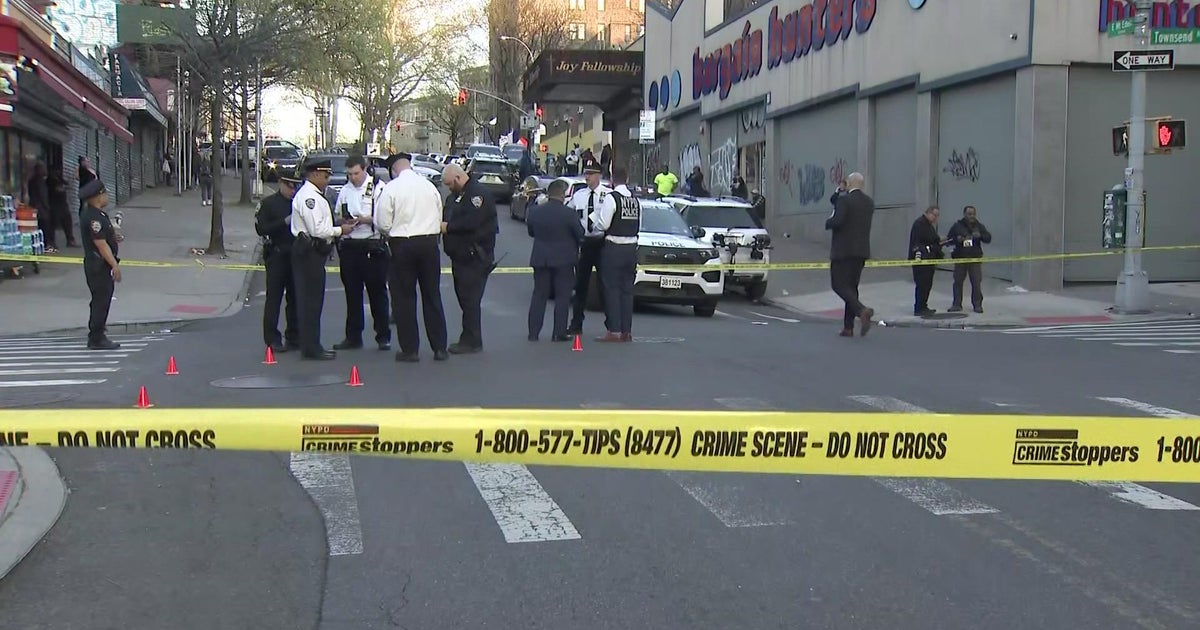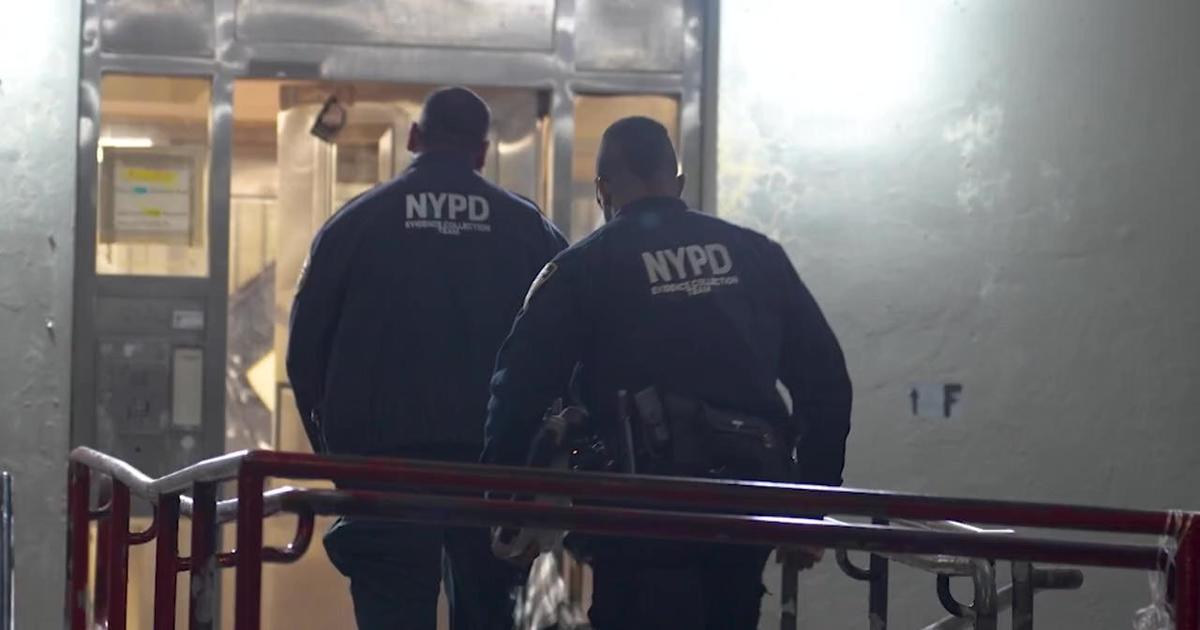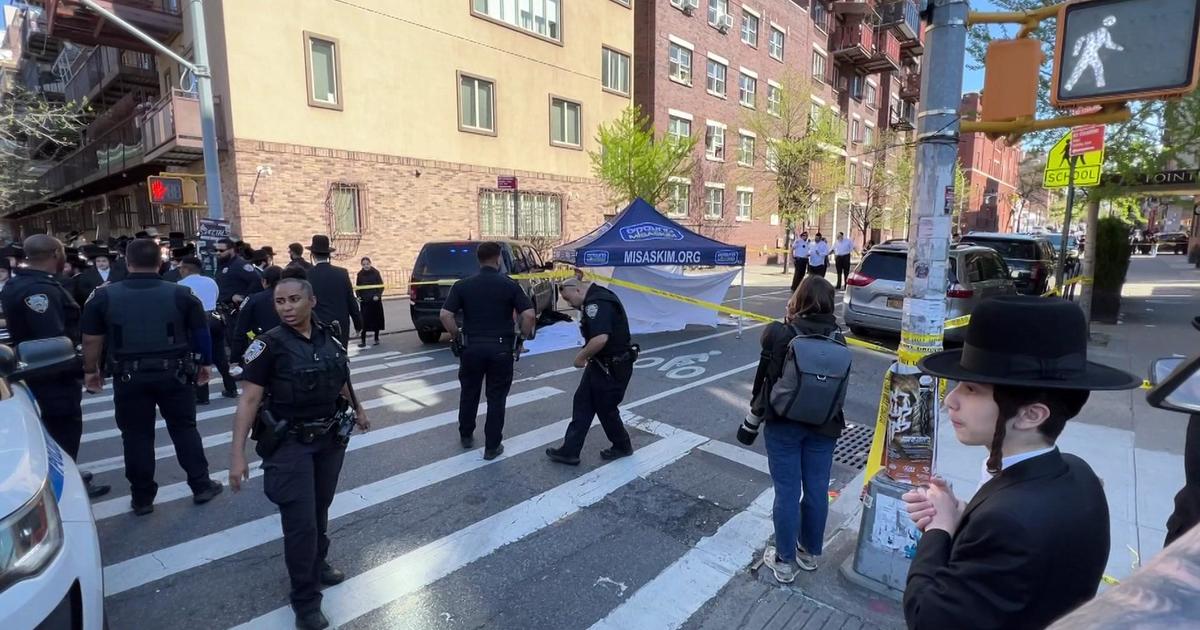5 Elderly Women Fighting Closure Of Park Slope Assisted-Living Home
NEW YORK (CBSNewYork/AP) -- The stately dining room at this once-bustling old-age home has been emptied, its floors ripped up. The tiny general store's shelves are barren, and the exercise room has gone silent. No one is leafing through the books of the library or digging into a treat in the ice cream parlor or painting at an easel in the art room.
In the hulking assisted-living facility, all that remains are five women, ages 91 to 101, in the fight of their long lives.
Two years after the owner of Prospect Park Residence announced the building in the trendy Park Slope neighborhood would be sold and converted to condos, its fate remains in limbo, 1010 WINS' Samantha Liebman reported.
The announcement came in a meeting that elicited screams and wails from among the 125 residents. Yet nearly all of them, including Holocaust survivors, a Tuskegee airman and a floor full of people with advanced dementia have heeded management's call to leave.
In a sort of age-reversed version of a campus sit-in, however, five have refused to go, challenging the handling of the sale and sparking a web of litigation. The holdouts' fight is shedding light on the rights of the elderly and the difficulty of transition in life's twilight.
"I think we have that right to do what we want to do,'' said 93-year-old Annemarie Mogil, a retired social worker who has remained in her eighth-floor apartment and says she can't imagine leaving Brooklyn or imposing on a daughter who already has her hands full. "I've earned my rest. I worked hard. I deserve my peace.''
Down the hall, Alice Singer takes solace in the place she has come to regard as home, decorated with oil and acrylic paintings she made. She speaks of small comforts big windows and bright light but also of the overarching fear: She doesn't know where she'd go if she had to leave.
A few floors below, it is the same fear that keeps 98-year-old Lillian Guide from leaving her apartment.
"All of this,'' said Deborah Pollack, the daughter of Guide, who has Alzheimer's disease, "is an effort to protect my mother from having to go into a storage facility.''
Prospect Park Residence, in operation for years and anchored on a lucrative plot of Brooklyn land, was purchased in 2006 by developer Haysha Deitsch for about $40 million. In 2013, he reached a deal to sell the property for $76.5 million, with millions more in potential bonuses if he could meet deadlines for emptying the building. The home's fate remained secret, following state Department of Health rules, until its closure plan was approved and then announced in March 2014. Lawyers and others allied with families of the residents see more to the story, though.
It was billed as an assisted-living facility, but unbeknownst to tenants, it was not licensed as one by the state until 10 months before it submitted its closure plan. In litigation predating the current battles, Deitsch insisted he was simply a landlord, and "not in the health care business.''
Those who oppose the owner believe he sought a license simply because he thought it would ease the removal of residents, avoiding potentially costly and lengthy evictions through New York City's housing court. The rules for long-term care centers only require 30 days' notice to residents before closing. Deitsch gave them 90.
"If you tried to evict 120 old people in landlord-tenant court, it would take you five years and probably $10 million in attorney fees,'' said John O'Hara, an attorney who has filed seven wrongful-death suits against the facility claiming inadequate treatment or improper discharge played a role in fatalities. By getting assisted-living status, O'Hara said, "he gets a license just to kick everyone out.''
As Prospect Park Residence was emptying, a small band of tenants decided the home was worth putting up a fight for. Local politicians came to their defense, and The Legal Aid Society sued on their behalf. As the months ticked by, they said Deitsch purposely worsened conditions in hopes of persuading them to leave. O'Hara called it a "campaign of terror.''
The holdout residents were being bathed less frequently and saw housekeeping scaled back and some elevators shut off, their backers say. On hot days, they said central air conditioning was cut off, leaving many parts of the building stifling, and window units were ineffective and noisy. On cold days, they said the heat was tampered with. Singer remembered her aides jury-rigging baths with microwaved water because management had shut off the hot water.
Deitsch, the opponents of the sale say, orchestrated those moves all while raising fees on the holdouts. Then, in a countersuit against the families of the remaining residents, he called for $50 million in damages for their interference in the sale, "slanderous'' allegations and resulting "mental anguish.''
"In the court of public opinion, we're never going to win. But we weren't left with a choice,'' Deitsch said in a brief interview. "I'm not trying to win the public. I'm trying to take care of the people and I'm trying to do what's right.''
In an emailed reply to additional questions from The Associated Press, Deitsch said he wishes some circumstances were different, but he always followed state law. Residents of the home always "received outstanding services and care'' and he never cut back on services, he said.
Choosing to close was not an easy decision, he said, but costs became untenable at Prospect Park Residence after the expiration of temporary tax benefits. He rejects the idea that he sought licensure for the facility simply to ease evictions; had he planned to close, he said, he never would have gone through the cumbersome process at all.
He portrayed the remaining residents as unable to make decisions on their own and represented by individuals with questionable motivations.
"We have not settled because the representatives of those who remain are not negotiating in good faith. They repeatedly have changed their positions and moved the goal post,'' Deitsch wrote. "Those representing the remaining residents are acting out of greed and malice and appear unwilling to offer any compromise or reasonable position.''
In legal filings, he has said the facility is running a deficit of $100,000 a month and bankruptcy is possible.
But Deitsch finds a tiny bit of common ground with his opposition, saying residents' complaints should really be with the Legislature and state regulators.
New York City Councilman Brad Lander, a vocal opponent to the handling of the sale, also sees lax state oversight, though he isn't letting Deitsch off the hook.
"He is evil. He is acting in a way that I think is sociopathic. But the state health department has essentially taken the side of the sociopath instead of the side of the seniors who it's their job to protect,'' Lander said.
Erin Silk, a spokeswoman for the state Department of Health, said she could not comment on active litigation. In court filings, the department defended the secrecy of closure plans, saying it "avoids chaos'' of word trickling out. Prospect Park Residence filed a plan that, after some revisions, "was plainly consistent with the regulations,'' the department said.
The department's filings say that residents' "distress and conjectural fears'' do not override the rules and that they "have refused to engage whatsoever with the operator on the subject of transfers.''
The lawsuit targeting the closure says it failed to adequately ensure residents would be transferred to appropriate new homes and not forced into unnecessarily restrictive settings. Families are trying to keep their loved ones out of nursing homes where they would have less independence, but the options are few.
Brooklyn is New York City's most populous borough, with about 2.6 million people, but there are only three other licensed assisted-living facilities. Judith Goldiner, the Legal Aid attorney representing residents, said not all of those homes allow outside aides, a major concern for maintaining consistency, particularly for those living in a fog of dementia, as some of the holdouts do.
Justice Wayne Saitta of the Brooklyn state Supreme Court ruled the initial closure plan inadequate and intervened on specific complaints, including the resumption of central air conditioning and consistent hot water. A new closure plan was submitted to the state and approved; it is the subject of a new lawsuit claiming appropriate new homes still have not been found for the remaining five. They say the options offered have been prohibitively expensive, excessively far or have other problems. Saitta has attempted to broker a settlement.
As hearings drag on, emptiness abounds in the building on coveted Prospect Park West, a street where two-bedroom apartments easily top $1 million. One of the few beneficiaries of the void is Mogil's gray-and-white cat Yanie, who now can amble the hallways freely.
Mogil and Singer spend much of their day together. They speak of the difficulty in moving to the home to begin with, but of growing to love its location and simple pleasures. They watch bikers, skaters and runners in Prospect Park below, witness the changing of seasons, hear the sounds of city life. It keeps them feeling alive.
"It's bright and cheerful and it's got everything,'' said Singer, a retired bacteriologist who has mild dementia. She laments how her former neighbors "were just shipped to different places.''
Fearful other facilities would fill up, many rushed into painful moves. In court filings, attorneys say one former resident experienced a psychotic break as a result of the move. Another, they said, was so traumatized that she suffers from panic attacks.
Ruth Willig, 92, moved to Prospect Park Residence in 2009 to be close to her daughter Judy Willig and felt a sense of community there but the mood in the home changed once the closure was announced.
With no room in her own apartment, Judy Willig arranged for her mother's transfer to another assisted-living home farther from her in Brooklyn. "It was the least worst of the options,'' she said.
Sandy Reiburn brought her 95-year-old mother Trina Kruger to live with her after the closure was announced, but she is lonelier without the familiar faces and activities. Reiburn has tracked the diaspora of residents, and she knows many others have fared much worse. "So many people died when they left,'' she said.
Retired seamstress Gloria Russo happily ambled the home's halls with a little white Maltese dog named Chloe in a blanket-lined basket attached to her walker. She became its ambassador, showing prospective residents around and extolling the joy of living there. But when she learned the building's fate, she called her daughter, Laura Perry, sobbing, and fell into a depression, convinced she had played a role in others' pain by convincing them to move there.
"She said, `They're closing! They're closing! Look what I did: People came here because of me,''' Perry said.
Perry found her mother a new facility on Long Island, but she said she moved there a different woman less outgoing and suddenly plagued by health problems. Less than a year after the transfer, she was dead at 91. She was "broken,'' her daughter said.
The holdouts repeat these cautionary tales. Sitting with her friend Singer recently, Mogil says she knows she needs to think of what she will do if forced to leave, but it's too hard.
"My heart is in Brooklyn. At this age, each year, the moving becomes more difficult,'' she says. "I don't even want to think of what moving again would do to me psychologically.''
Singer says she knows she might be seen as stubborn, but the 91-year-old adds with a straight face, "When I grow up, I'll find out if stubbornness is good or bad.''
(TM and © Copyright 2016 CBS Radio Inc. and its relevant subsidiaries. CBS RADIO and EYE Logo TM and Copyright 2016 CBS Broadcasting Inc. Used under license. All Rights Reserved. This material may not be published, broadcast, rewritten, or redistributed. The Associated Press contributed to this report.)



